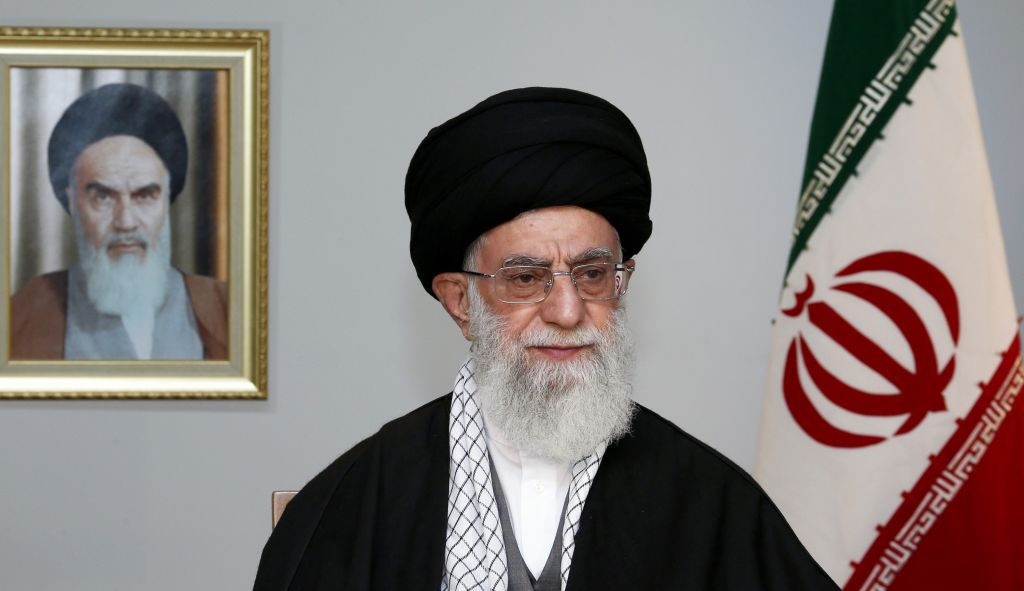Iran won’t be bullied
September 18, 2017 | Expert Insights

Iran's Supreme Leader Ayatollah Ali Khamenei in a fiery address has said that the nation won’t be intimidated by American “bullying” regarding the 2015 nuclear deal.
Background
Iran’s nuclear program has been a concern for the international community for decades. Despite the fact, the nation ratified the Non-Proliferation Treaty in 1970, an investigation by the IAEA revealed that Iran had not declared a number of its nuclear activities to the group.
Thus, the nation was subjected to multiple harsh sanctions from the international community. This has cost the nation billions of dollars (estimated $100 billion in oil revenues alone till 2015). It has also lost out on foreign direct investment. In 2015, the nation agreed to significantly scale back on its nuclear program in a deal with P5+1 at the UN. In turn, the UN nations agreed to lift many of the harsh sanctions on the region. After the International Atomic Energy Agency (IAEA) declared that Iran had complied with the terms set in the provisional agreement, in 2016, the sanctions were officially lifted. Iran’s current nuclear program is now periodically checked and reviewed by the IAEA.
Analysis
US President Donald Trump has often been critical of the nuclear deal. He has even noted that the nation has not complied with the “spirit” of the deal, which was refuted by Iran. During the most recent inspection, IAEA declared that Iran was complying with the restrictions.
Iran's Supreme Leader Ayatollah Ali Khamenei has up until now not directly addressed the threats by the United States to nullify the agreement. However, during a recent public event, he struck an angry tone towards US. He described the behavior displayed by the United States as “bullying” and added, “Today, despite all the commitments and discussions in the negotiations, America’s attitude toward these negotiations and their outcome is completely unjust and amounts to bullying. The Iranian nation is standing firm and any wrong move by the domineering regime regarding the (nuclear accord) will face the reaction of the Islamic Republic.” He added, “The Americans should know ...there will be no retreat by the Islamic Republic.” He also accused American officials of corruption stating, “The corrupt, lying, deceitful US officials insolently accuse the nation of Iran ... of lying, whereas the nation of Iran has acted honestly and will continue on this path until the end in an honest manner.”
US Secretary of State, Rex Tillerson, has defended Trump’s comments. He said that while Iran was in compliance of the terms struck in the agreement, it’s not upholding the spirit of the deal. During an interview with a network channel he said, “What we have witnessed is Iran has stepped up its destabilizing activities in Yemen. It's stepped up its destabilizing activities in Syria. It exports arms to Hezbollah and other terrorist groups. And it continues to conduct a very active ballistic missile program. None of that, I believe, is consistent with that preamble commitment that was made by everyone.”
The international community has not publicly weighed in on the brewing conflict between the US and Iran over the deal. Reuters quoted a senior European diplomat stating, “We all share U.S. concerns about Iran’s destabilizing role in the region, but by mixing everything up, we risk losing everything.”
Assessment
Our assessment is that while some may argue that the 2015 nuclear deal was not perfect, it blocked Iran from being able to build nuclear weapons. If the deal is nullified, despite Iran’s compliance, then there will no longer be any checks and balances to prevent Iran from once again engaging in building nuclear weaponry. We believe that Iran has the ability now to build the bomb and such a move would completely alter the status quo in the entire Middle East and Persian Gulf. If such a conflict results in the closure of the Strait of Hormuz, it would choke the entire energy supply to Asia.








Comments